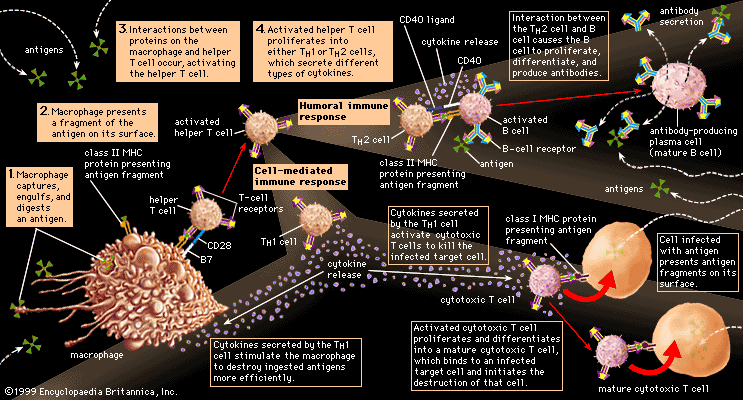
What are Beutler's key advances in immunology and disease

Immunology is a vast field that examines how our body's defense mechanisms protect us from diseases caused by pathogens such as bacteria and viruses. Among the notable figures in this area is Bruce A. Beutler, whose groundbreaking research has dramatically advanced our understanding of the immune system's innate responses. Beutler's work not only elucidates how innate immunity operates but also reveals crucial pathways that could be targeted for new therapeutic interventions. This article delves into Beutler's key advances in immunology and disease, highlighting his significant contributions, including his role in discovering tumor necrosis factor (TNF) and toll-like receptor 4 (Tlr4) which have reshaped modern immunology.
Born in Chicago and raised in California, Beutler pursued his education in biology and medicine, laying the groundwork for his illustrious career. The significance of his discoveries cannot be overstated, as they provide a foundational understanding of complex immune processes and pave the way for targeted disease treatments. This exploration of Beutler's work will cover his early life, education, carrier milestones, and lasting impact on the science of immunology.
Early Life and Education
Bruce A. Beutler was born to a supportive family that encouraged his academic pursuits. His early fascination with biology blossomed during his childhood in Arcadia, California, fostering a profound interest in understanding life and its mechanisms. Beutler's educational journey began at the University of California, San Diego, where he earned a degree in biology. His academic diligence and passion for research were evident even as an undergraduate.
Following his undergraduate studies, Beutler took the next step by diving into the world of medicine, enrolling in the prestigious University of Chicago to obtain his medical degree. This cross-disciplinary education equipped him with both the biological knowledge and clinical insights necessary to investigate immune responses critically. It was during his time in medical school that Beutler began to formulate ideas that would later culminate in groundbreaking discoveries in immunology.
Career Overview
Beutler's professional career is marked by a series of influential positions at leading research institutions. After completing his medical training, he started his research journey at the Scripps Research Institute where he initially focused on genetics but soon transitioned to studying immunology. His career accelerated significantly when he joined the faculty at the University of Texas Southwestern Medical Center in Dallas, where he conducted research on the immune response and its underlying mechanisms.
Throughout his career, Beutler's work has been characterized by a focus on innate immunity, the body's first line of defense against infectious agents. His research has led to essential findings that have opened new avenues for understanding the immune system and developing interventions for various diseases. Beutler's dedication to understanding the complexities of the innate immune response culminated in his recognition as one of the preeminent immunologists of his generation.
Key Discoveries in Immunology
Beutler's career is defined by several key discoveries that have had profound implications in the field of immunology. His research findings have not only contributed to academic knowledge but also enhanced the understanding of critically important biological pathways that govern responses to infection. Among these discoveries, his work on tumor necrosis factor (TNF) stands out as a significant advance in the field.
The Role of Tumor Necrosis Factor (TNF)
One of Beutler's most impactful contributions to immunology is the isolation and characterization of tumor necrosis factor (TNF). In the late 1980s, Beutler and his team conducted experiments to purify TNF, a cytokine known to mediate inflammation and contribute to the immune response. Through his meticulous research, Beutler demonstrated that TNF plays a vital role in the body's response to infection, particularly in its ability to induce fever and activate other immune cells.
The discovery of TNF has had far-reaching implications, not only for understanding how the immune system reacts to pathogens but also in the context of various inflammatory diseases. Research following Beutler’s work has led to the development of anti-TNF therapies that are now used to treat numerous autoimmune conditions such as rheumatoid arthritis and inflammatory bowel disease, showcasing the translational aspect of his findings.
Discovery of Toll-Like Receptor 4 (Tlr4)
Another landmark discovery that solidified Beutler's reputation as a pioneer in immunology was his identification of toll-like receptor 4 (Tlr4). This receptor is pivotal in recognizing pathogens and initiating inflammatory responses. Beutler's work with Tlr4 began during his research on septic shock and the mechanisms behind systemic inflammatory responses.
Beutler's discovery of Tlr4 laid the groundwork for understanding how the immune system differentiates between harmful pathogens and benign substances. He demonstrated that Tlr4 is a critical component that recognizes lipopolysaccharides, a component found on the surface of many bacteria. This recognition triggers signaling pathways that lead to the activation of inflammatory responses, providing insights into how the body responds to infections and potentially paving the way for therapeutic strategies targeting these pathways.
Impact on Understanding Inflammation and Sepsis
The elucidation of roles played by both TNF and Tlr4 has had a monumental impact on the understanding of inflammation and sepsis. Beutler's research has been instrumental in expanding the scientific community's comprehension of how the immune system functions, particularly in responding to infections. His findings shed light on the complex network of cytokines and receptors that interact during an immune response, thus providing a clearer picture of how inflammation is controlled.
Through his work, Beutler has helped explain the challenges associated with excessive inflammation and uncontrolled immune responses, particularly in sepsis. Sepsis is a life-threatening condition that arises when the body reacts adversely to an infection, and understanding the molecular mechanisms—such as those involved with TNF and Tlr4—has been crucial in developing effective treatments. Consequently, Beutler's discoveries continue to influence clinical practices regarding how physicians manage sepsis and other inflammatory conditions.
Awards and Recognition
Bruce A. Beutler's illustrious career has been marked by numerous accolades and recognitions that reflect his significant contributions to scientific research. Among the most prestigious honors he received is the Nobel Prize in Physiology or Medicine in 2011, which he shared with Jules A. Hoffmann and Ralph M. Steinman. This award recognized his pivotal insights into the innate immune system's activation, underscoring the global impact of his work.
In addition to the Nobel Prize, Beutler has received other notable awards, including the Robert Koch Prize and the Shaw Prize. These accolades further establish his standing among leading immunologists and reflect the recognition of his research's significance in advancing the understanding of autoimmune diseases and inflammation. Elected to the National Academy of Sciences in 2008, Beutler's work continues to inspire new generations of researchers in the field.
Influence on Modern Medicine
The influence of Beutler’s discoveries on modern medicine cannot be overstated. His identification of TNF and Tlr4 has paved the way for novel therapeutic strategies targeting inflammatory pathways. The development of anti-TNF therapies demonstrates how basic research can translate into clinical interventions that improve patient outcomes. Beutler's findings have also stimulated further research into the mechanisms of immune regulation and offered vital insights into the management of various diseases characterized by excessive inflammation.
Moreover, Beutler’s work has catalyzed a new approach to understanding diseases that link innate immune responses to pathological conditions. Researchers are inspired by his foundational work to explore other components of the immune system, seeking further advancements in immunotherapy and vaccine development. Beutler's contributions highlight the importance of scientific inquiry in addressing pressing health challenges, ultimately paving the way for innovative approaches in medicine.
Conclusion
In conclusion, Bruce A. Beutler stands as a towering figure in immunology, whose discoveries have had profound implications on the understanding of the innate immune system and its role in disease. From his early educational pursuits to his groundbreaking research on TNF and Tlr4, Beutler's work has reshaped our comprehension of how the body defends itself against infections and manages inflammatory responses. Through his remarkable career, he has significantly influenced modern medicine, laying the foundation for therapies that alleviate suffering from various autoimmune and inflammatory diseases.
As we look forward, Beutler's contributions will continue to inform future studies in immunology and related fields, driving progress in the development of new treatments and broadening our understanding of complex biological systems. His legacy serves as an inspiration for scientists and researchers who aspire to follow in his footsteps, further unraveling the intricacies of the immune system to benefit human health.
Did you find this article helpful? What are Beutler's key advances in immunology and disease See more here Education.
Leave a Reply






Related posts